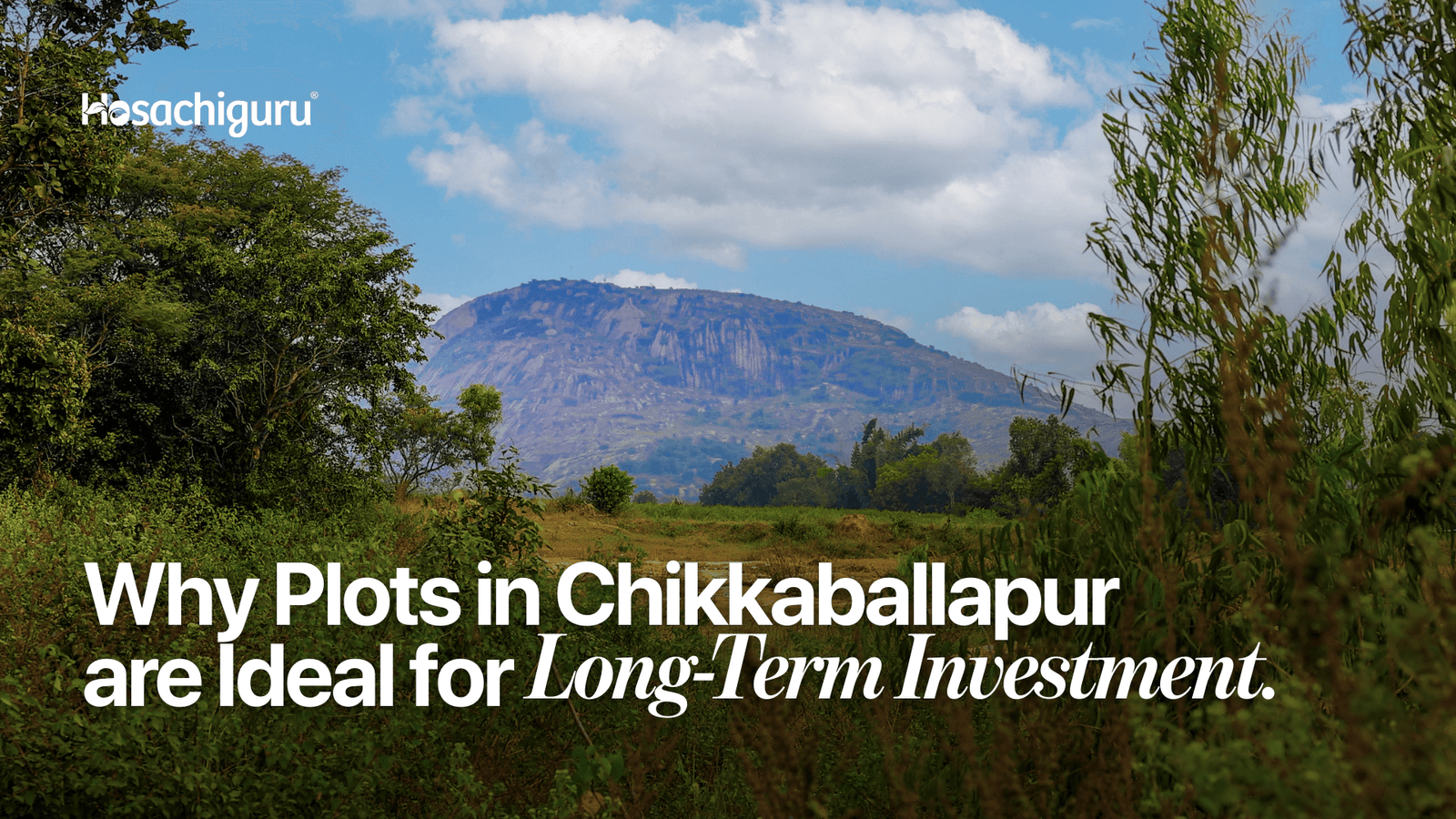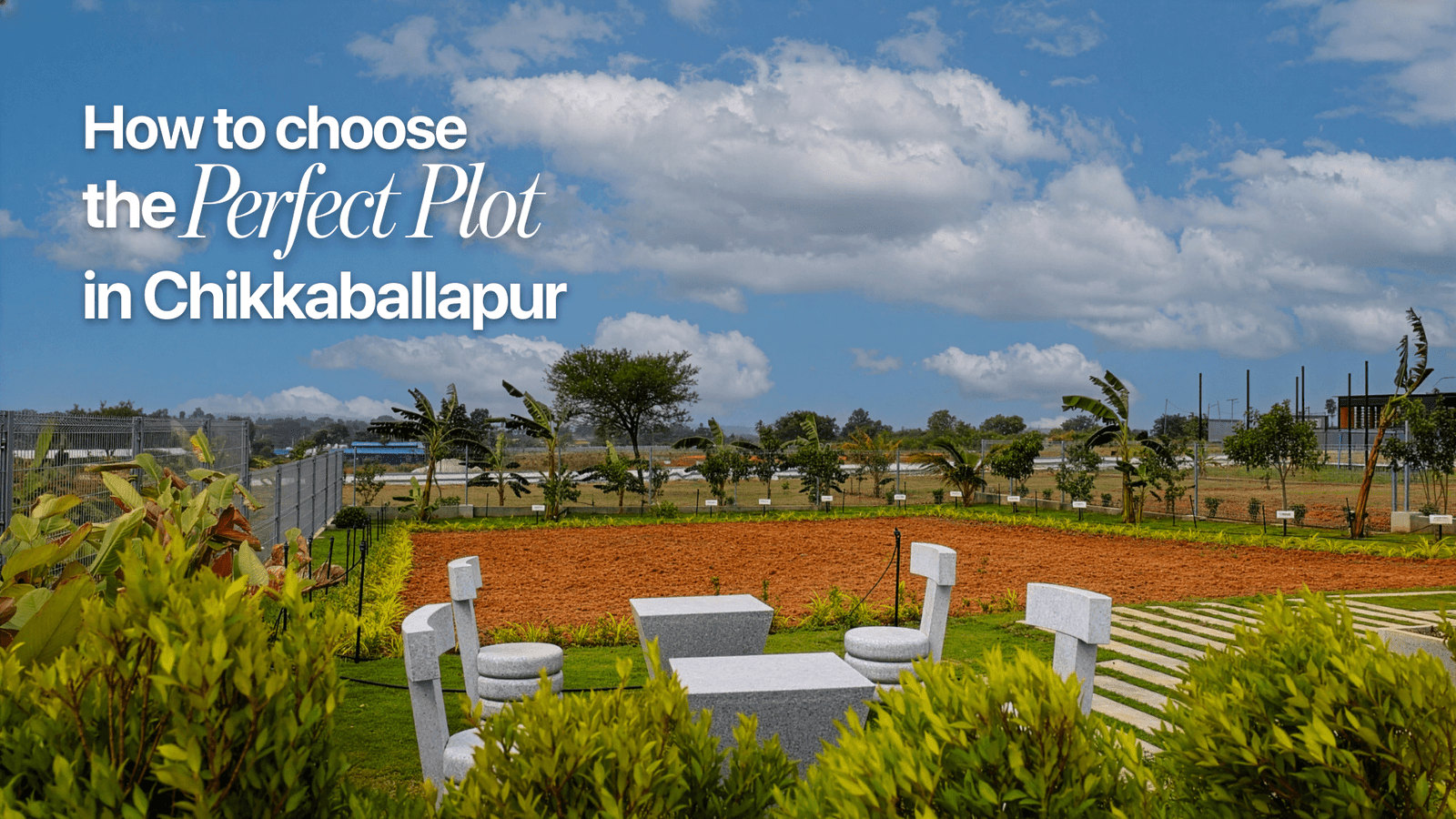Author : Anmol Agarwal
In today’s fast-paced society, it’s easy to prioritize convenience over nutrition, often opting for pre-packaged or processed foods that are quick to prepare but lack essential nutrients. However, have you ever paused to consider the journey your food takes before it reaches your plate? Conventional farming methods, which dominate the food industry, heavily rely on synthetic chemicals, Hybrid variety plants and long transportation routes. This often results in produce that is not only less nutritious but also more harmful to the environment.
This is where managed farmlands come into play. Managed farmlands are meticulously maintained agricultural spaces dedicated to ensuring sustainable practices, producing high-quality, nutrient-rich produce while minimizing environmental impact. Imagine having a personal oasis where you can grow your own tomatoes for rasam or flowers to brighten your home. It’s a place where you can bask in the rays of sunshine and hear the joyful laughter of your children playing barefoot in the grass.
Managed farmlands prioritize health and sustainability, making them a crucial component of a balanced and healthy lifestyle. By choosing the produce from managed farmlands, you not only nourish your body with the best nature has to offer but also contribute to a healthier planet.
In this article, we will explore how managed farmlands contribute to a healthier lifestyle and better life balance through several avenues. By understanding these benefits, we can better appreciate the role of managed farmlands in fostering a healthier, more balanced life.
1. Access To Safe Food
Researchers from the Environment Management and Policy Research Institute (EMPRI) analyzed 400 vegetable samples from 20 locations in Bengaluru, finding contamination levels exceeding FAO limits. Examining 10 types of vegetables, including brinjal, tomato, capsicum, and spinach, they discovered iron concentrations far above permissible levels Notably, the permissible limit for iron is set at 425.5 mg/kg, yet beans registered an iron concentration of 810.20 mg/kg. Similarly, coriander recorded 945.70 mg/kg, and spinach exhibited 554.58 mg/kg. These excess heavy metals result from pesticides and synthetic fertilizers to induce faster food production.
Managed farmlands offer a safer alternative. At Hosachiguru, we prioritize soil health by using organic fertilizers like cow dung and plant-based nutrients, avoiding synthetic chemicals. This approach ensures our produce is free from harmful contaminants and rich in essential vitamins and minerals. By choosing managed farmlands, you support sustainable farming practices and enjoy the freshest, healthiest produce, knowing exactly where your food comes from.
2.Improved Mental and Physical Health
“In the heart of nature lies the essence of true happiness and well-being.”
Every person yearns for that blissful state known as happiness, and achieving it is both possible and straightforward. With the right approach, anyone can learn, desire, and attain happiness. Immersing oneself in nature can foster a profound sense of joy.
Beyond creating a joyful mind, nature offers remarkable physical health benefits. Spending time outdoors can boost the production of natural killer cells by 50%. Managed Farms lands of Hosachiguru present Natural outdoor environment. These cells, vital components of the immune system, combat virally infected, tumor, and cancer cells. This increase is attributed to phytoncides, organic compounds released by trees, which enhance the production of natural killer cells and anti-cancer proteins like perforin, granzymes, and granulysin. Additionally, nature reduces stress-related hormones and cortisol levels, contributing significantly to improved physical, mental, and emotional health.
3.Foster Community Connections
In our digital age, the sense of community can feel fragmented, yet its importance remains undeniable for our well-being. Managed farmlands play a pivotal role in fostering these connections, serving as hubs for local engagement where individuals from diverse backgrounds unite to nurture the land and produce sustainable food. Educational workshops and events on these farms strengthen community bonds, offering learning opportunities about organic farming and sustainability, and providing social spaces for shared knowledge and experiences.
At Hosachiguru, we enhance community building with programs like “Touch with Nature” and “Green Superheroes,” designed to educate and reconnect green enthusiasts of all ages to their roots. By prioritizing sustainability, we create a community of co-farmers who understand they are part of the solution, not the problem, fostering a supportive network that enhances both individual well-being and environmental health.
4.Reduced Chemical Use
Conventional farming frequently depends on pesticides, herbicides, and synthetic fertilizers to boost yields and control pests. Unfortunately, these chemicals remain in our food chain and pose significant health risks, including headaches, dizziness, nausea, skin irritations, endocrine disruption, cancer, and reproductive issues, while also harming the environment.
Managed farmlands, however, embrace sustainable practices to mitigate these risks. Organic farming methods, which avoid synthetic fertilizers and chemicals, are a cornerstone of this approach.
Our team at Hosachiguru prioritizes soil health through regenerative practices like no-till farming, mulching, organic concoctions, and biomass plantations. By maintaining healthy soil, we can reduce the need for chemical fertilizers and increase plants’ resilience against pests and diseases. This method not only minimizes chemical use but also supports a more sustainable and environmentally friendly farming system. Through these innovative practices, managed farmlands like ours offer safer, healthier, and more eco-conscious agricultural solutions.
5.Promotion Of Biodiversity
Did you know that over 75% of global food crops rely on pollination by insects and other animals? Managed farmlands play a crucial role in promoting biodiversity, which is essential for these natural processes. By providing shelter for insects and birds, these farms create habitats for local flora and fauna, supporting a balanced and healthy ecosystem.
Managed farmlands cultivate a variety of native plants, creating a rich environment that attracts and sustains beneficial wildlife. Insects like bees and butterflies, and birds find food and shelter, contributing to natural pest control and pollination. This diversity ensures the health of fruit plants and the overall productivity of the farmland.
In our managed farmlands we emphasize planting native varieties of plants, which are vital for supporting local biodiversity. These plants provide essential resources for pollinators and other beneficial insects, enhancing pollination and fostering a thriving ecosystem. By promoting biodiversity, we create resilient farmlands that contribute to a sustainable and balanced environment.
6.Conservation Of Water Resources
Have you considered how much water conventional farming demands? Traditional farming uses up to 70% of the world’s freshwater, with nearly half lost to evaporation, runoff, or inefficient application.
Managed farmlands address this by implementing efficient water conservation practices. Rainwater harvesting collects and stores rainwater for agricultural use, reducing reliance on groundwater and municipal supplies. These systems, ranging from simple barrels to complex cisterns, provide crucial water during dry periods.
Swales and trenches also help conserve water. Swales are vegetated trenches that capture and slow rainwater, allowing it to seep into the soil and replenish groundwater. Trenches direct water to first crops & reduce runoff and ensure efficient irrigation.
Bioswales, larger and more engineered than swales, filter pollutants from runoff while facilitating groundwater recharge. These methods not only conserve water but also improve its quality by removing sediments and contaminants.
Borewell Recharging is done by filtering and diverting excess Rainwater into Borewells that are operational. This ensures fast replenishing of underground Aquafers in the farms.
At Hosachiguru, we use these techniques to optimize water usage and conserve resources. Our sustainable practices ensure that our farmlands are productive and environmentally responsible, supporting both agriculture and ecological health.
Conclusion
Achieving a balanced and healthy life starts with mindful decisions. Managed farmlands provide a powerful way to make those decisions, combining sustainable techniques with the enduring benefits of nature. By supporting well-managed farmlands, we contribute to our well-being and our planet’s.
Let’s lead this movement and motivate others to embrace a future where managed farmlands play a pivotal role in our lives, paving the way for a healthier, more joyful, and balanced world for generations ahead.

 26 Jun 2024
26 Jun 2024  7 Min
7 Min


